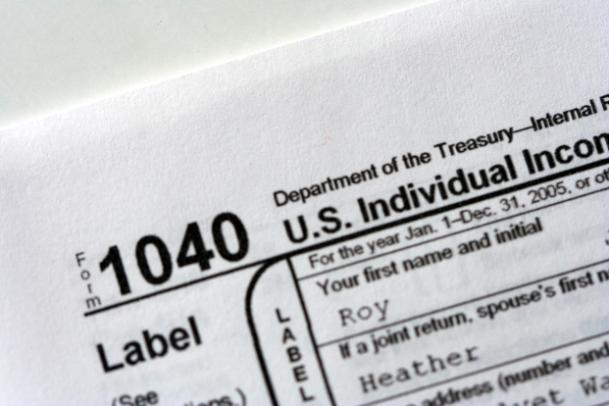Employment Taxes and the Trust Fund Recovery Penalty
There are two components to employment taxes – the employer’s portion and the employees portion. The employer is required to withhold the employees portion, which amount is deducted (withheld) from a Form W-2 employee’s wages. It is important for the employer to pay these withheld funds to the government as they are attributed to the employee’s portion of Social Security and Medicare contributions. If not withheld and submitted, the employee does not get credit for the time worked and it can affect the employees’ future social security benefits.
To compel prompt payment of withheld income and employment taxes, such as Social Security and Medicare taxes. the IRS is allowed to assess the Trust Fund Recovery Penalty (TFRP) against anyone responsible for paying over the withheld taxes who fails to do so. Employment taxes are called “trust fund” taxes because the employer is holding the employee's money in trust until the federal deposit is made. If unpaid trust fund taxes cannot be immediately collected from the employer, the IRS may assess the TFRP against any person who is “responsible” for collecting or paying withheld income and employment taxes, and willfully fails to collect the tax or pay over the taxes collected.
Who is a “Responsible person?” Any person or group of people who have the duty to perform and the power to direct the collecting, accounting, and paying of trust fund taxes is considered a responsible person. A responsible person can be:
An employee of a corporation (anyone given power to draft or sign checks),
A partner or employee of a partnership,
A corporate officer, director, or shareholder,
The company accountant,
A volunteer director/trustee,
Another corporation or third-party payer, such as a payroll processing company.
A responsible person includes one who signs checks for the business or otherwise has authority to cause the spending of business funds. If you are on the signature card, beware! You may be held liable for the payroll taxes of the company you work for!!
Willfulness. For willfulness to exist, the responsible person must have been, or should have been, aware of the outstanding taxes, and either intentionally disregarded the law or was plainly indifferent to its requirements. No bad motive is required. For example, using available funds to pay other creditors or payroll when the business is liable for, but does not to pay, the withheld employment taxes is an indication of willfulness.
Third-party payers. The TFRP may be recommended against a third-party payer, such as a payroll service provider or professional employer organization, that willfully fails to collect, account for, and pay over taxes held in trust on behalf of its client (employer). The use of an outside payroll service does not relieve the employer or its employees who are responsible for collecting, accounting for, and paying the employer's payroll taxes from the responsibility of ensuring all the employer's payroll tax obligations are met. The responsible persons of the employer may still be assessed the TFRP when an outside payroll service does not pay over taxes held in trust. When an employer uses an outside payroll service, the IRS will consider additional factors when determining whether the responsible persons of the employer acted willfully.
Amount of penalty. The penalty is an alternative means of collecting unpaid trust fund taxes not fully collected from the business. The penalty is equal to the unpaid income taxes withheld, plus the employee's portion of the withheld FICA taxes.
Assessing the penalty. Once the IRS has determined a responsible person, they will send that person a letter stating the plan to assess the TFRP. The responsible person then has 60 days from the date of the letter to appeal the IRS’ proposal. If there is no response to the letter, the IRS will assess the penalty and send the responsible person a Notice and Demand for Payment. Once the IRS has assessed the TFRP, they can take collection action against the personal assets of the responsible person by filing a federal tax lien or taking levy or seizure action. This includes freezing bank accounts and assets.
Who Gets Tossed Into the Cauldron? The IRS will try to include as many people as possible in a trust fund investigation. My experience is that they will consider owners, officers, and anyone with bank signature authorization to be a responsible person. They will probably attempt to conduct interviews with all potentially responsible persons. Tax counsel should be retained for those interviews-no exceptions!
Success Stories: As an example of one of Mr. McFarlane’s wins, a Vice President and 50% owner of a corporation was subjected to a TFRP interview. The revenue officer proposed the assessment of the TFRP based solely on the VP’s position and ownership. The reality was that the President of the Company ruled the finances with an iron hand and controlled all checks that were drafted through the company computer system. The IRS Appeals Office agreed the VP lacked the control needed to pay the taxes, even though the VP knew of the employment tax liabilities. He could not write a check even if he wanted to do so. The Appeals Office reversed the revenue officer’s determination and the VP was completely relieved of any liability. The President of the Company, however, was not represented by Mr. McFarlane, and was not so fortunate.
In another court case, the IRS assessed a TFRP against the CEO of a holding company for unpaid federal withholding taxes of two of its related entities. The CEO admitted to signing the tax payment checks and giving them to a clerk for mailing but did not realize the clerk had not mailed the checks. Federal district court found this to be evidence that the CEO considered the taxes paid or, at worst, was negligent in failing to realize the checks had not been mailed. His behavior may have been negligent but did not rise to the level of willfulness, the Court ruled the CEO was not liable for the TFRP
If you or your company has an employment tax issue, be it a TFRP issue or a worker classification issue, McFARLANE LAW – A Tax Law Firm is experienced, professional, and efficient in handling such employment tax issues. Rely upon a tax attorney as response time is short and your responses to questions can get you in trouble.
Call McFARLANE LAW – A Tax Law Firm
at T. 480.991.0032 or e-mail: [email protected]


